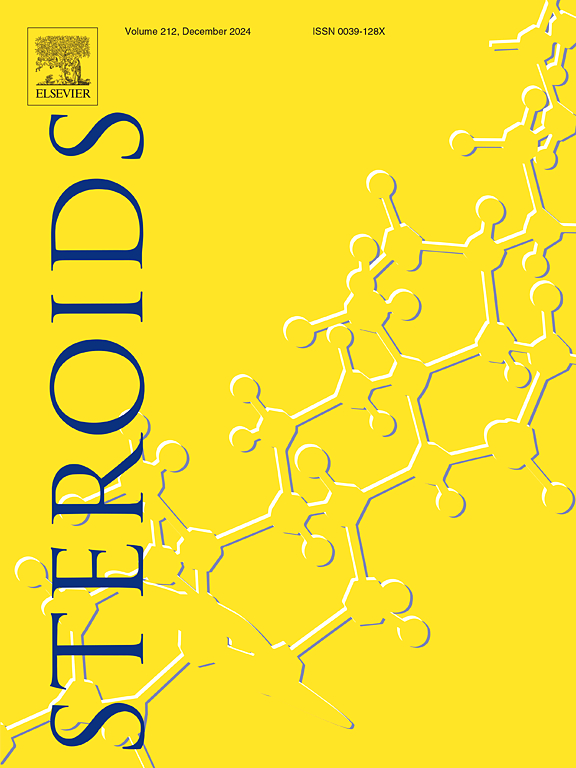Dehydroepiandrosterone sulphate (DHEAS) supplementation impacts adrenal cortex morphophysiology of aged female gerbils
IF 2.1
4区 医学
Q4 BIOCHEMISTRY & MOLECULAR BIOLOGY
引用次数: 0
Abstract
During the process of aging, it is common for women to take dehydroepiandrosterone sulphate (DHEAS) supplements to prevent adrenopause. However, the potential effects of this supplementation on the adrenal cortex have not yet been fully elucidated. Therefore, the present study aimed to analyze the effects of DHEAS supplementation on the adrenal cortex of female Mongolian gerbils during the aging process. The experiment was conducted by dividing the aged female gerbils (18 months of age) into two groups (n = 5). The control group received no treatment, while the experimental group received 60 mg/kg of DHEAS for 5 weeks. The adrenal glands of both groups were then subjected to morphological, hormonal and immunohistochemistry analyses. The results showed that DHEAS supplementation led to a significant increase in the accumulation of lipofuscin granules in the adrenal cells. Furthermore, decreases in ERα and ERβ and the enzymes CYP17 and 17βHSD, and an increase in the 5α-reductase enzyme in the adrenal cortex were also observed. The results suggest that DHEAS supplementation has a negative feedback effect on the adrenal cortex, affecting its morphophysiology and, consequently, the gland’s functionality. In addition, DHEAS supplementation does not reverse all aspects of the effects of aging on adrenal gland homeostasis.

补充脱氢表雄酮硫酸盐(DHEAS)对老年雌性沙鼠肾上腺皮质形态生理的影响
在衰老过程中,女性通常服用硫酸脱氢表雄酮(DHEAS)补充剂来预防肾上腺素暂停。然而,这种补充剂对肾上腺皮质的潜在影响尚未完全阐明。因此,本研究旨在分析在衰老过程中补充DHEAS对雌性蒙古沙鼠肾上腺皮质的影响。实验将成年雌性沙鼠(18月龄)分为两组(n = 5),对照组不给药,实验组给药60 mg/kg DHEAS,持续5周。然后对两组肾上腺进行形态学、激素和免疫组织化学分析。结果表明,补充DHEAS可显著增加肾上腺细胞中脂褐素颗粒的积累。肾上腺皮质ERα、ERβ和CYP17、17βHSD均降低,5α-还原酶升高。结果表明,补充DHEAS对肾上腺皮质具有负反馈作用,影响其形态生理,从而影响腺体的功能。此外,补充DHEAS并不能逆转衰老对肾上腺稳态的所有影响。
本文章由计算机程序翻译,如有差异,请以英文原文为准。
求助全文
约1分钟内获得全文
求助全文
来源期刊

Steroids
医学-内分泌学与代谢
CiteScore
5.10
自引率
3.70%
发文量
120
审稿时长
73 days
期刊介绍:
STEROIDS is an international research journal devoted to studies on all chemical and biological aspects of steroidal moieties. The journal focuses on both experimental and theoretical studies on the biology, chemistry, biosynthesis, metabolism, molecular biology, physiology and pharmacology of steroids and other molecules that target or regulate steroid receptors. Manuscripts presenting clinical research related to steroids, steroid drug development, comparative endocrinology of steroid hormones, investigations on the mechanism of steroid action and steroid chemistry are all appropriate for submission for peer review. STEROIDS publishes both original research and timely reviews. For details concerning the preparation of manuscripts see Instructions to Authors, which is published in each issue of the journal.
 求助内容:
求助内容: 应助结果提醒方式:
应助结果提醒方式:


